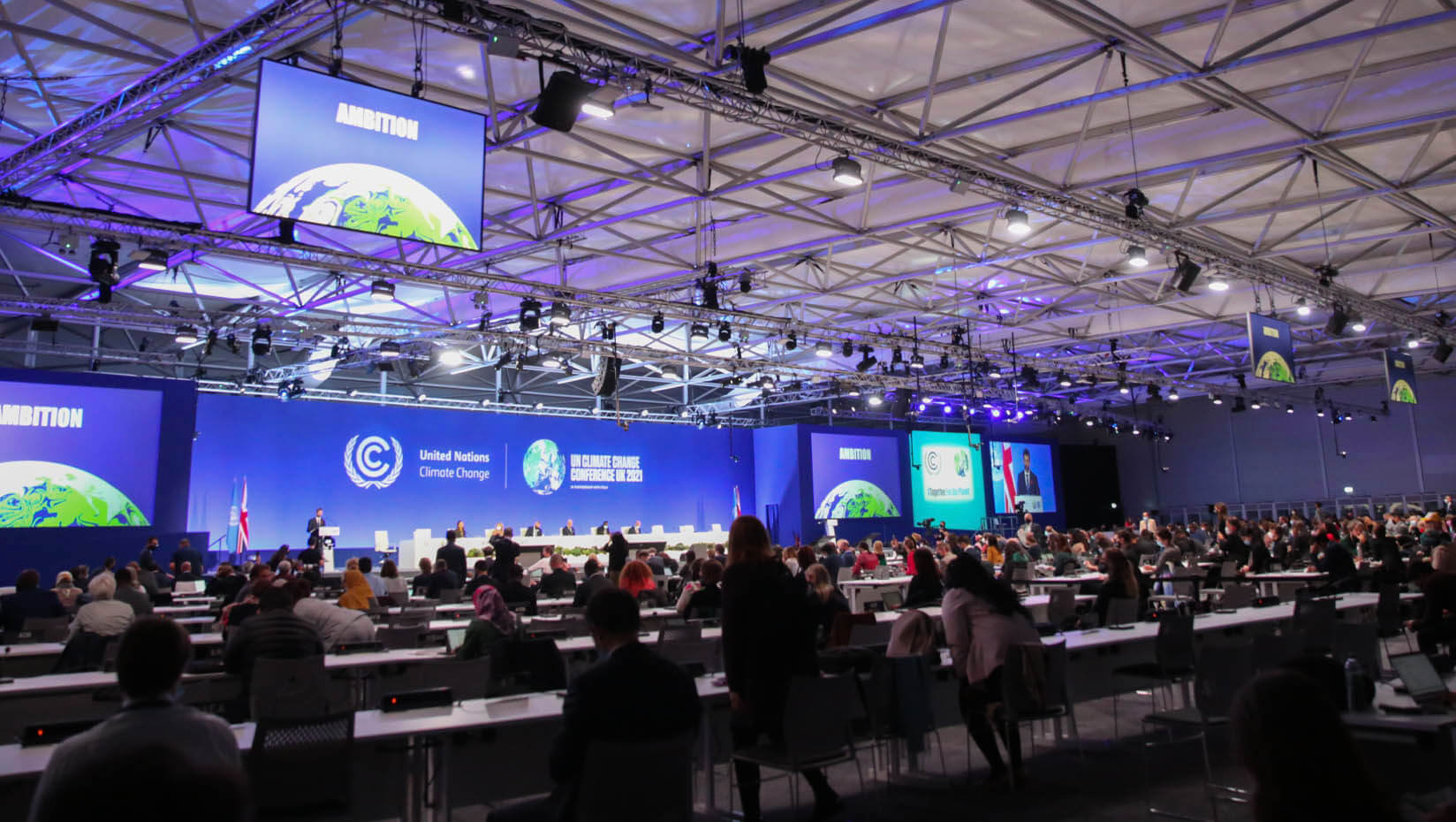
UMaine-led delegation of students, faculty attending UN climate summit
A University of Maine-led delegation of students and faculty will witness world leaders, diplomats and experts negotiate global policies to address climate change at a United Nations summit from Nov. 7–18 in Sharm El-Sheikh, Egypt.
By attending the United Nations Framework Convention on Climate Change (UNFCCC) 27th Conference of the Parties (COP27), graduate students and faculty from UMaine and the University of Maine School of Law will learn first-hand how delegates, scientists and other stakeholders devise initiatives to reduce greenhouse gas emissions worldwide and help countries mitigate the effects of global warming.
Delegation members also will have the opportunity to help write statements to present to country negotiators and network with high-level diplomats, fellow scientists and lawyers, and other stakeholders during the summit. Additionally, they will watch as research from UMaine and other institutions informs policy decisions on the world stage. For some faculty, observing negotiations will support their own climate change and global policy studies.
The delegation is co-headed by Cindy Isenhour, an associate professor of anthropology and climate change, and Nicholas Micinski, an assistant professor of political science and international affairs. Other members from UMaine include Adam Daignault, E.L. Giddings Associate Professor of Forest Policy & Economics; Daniel Hayes, an associate professor of remote sensing and geospatial analysis; Gabrielle Hillyer, a Ph.D. student in ecology and environmental scientists; Julia Hiltonsmith, a Ph.D. student of anthropology and environmental policy; and Victoria Markiewicz, a master’s student with the School of Policy and International Affairs. The members from Maine Law are Anthony Moffa, an associate professor of law, and Mikala Bolmer, a J.D. candidate.
“This is an absolutely incredible opportunity for the University of Maine and for graduate students in particular,” Isenhour says. “I think it’s a real opportunity for higher education to take a leadership role in climate mitigation. Opportunities like this are also just priceless for students to learn about climate governance.”
During COP27, Isenhour will provide scientific expertise to negotiators participating in the technical workshops of the Global Stocktake. The Paris Agreement includes a provision to “take stock” of progress on global goals for emissions and adaptation every five years. Isenhour, who has studied the politics of carbon accounting for five years, says she plans to “share information during the technical dialogs about alternative carbon accounting systems that can help to raise ambition and contribute to climate justice for developing economies.”
The summit also will feature discussions surrounding other aspects of carbon monitoring, public and private financing of climate change mitigation efforts, research, water governance, land use, renewable energy and other technologies, migration and refugees, equity and justice, and resilience and sustainability, all of which UMaine and Maine Law delegation members can attend.
Government and nongovernment delegations will host their own workshops and booths about different climate change-related issues and policies to address them, and their work to help tackle the problem.
“The importance of COP27 to the future of our planet and to the education of the next generation of climate policy leaders from UMaine and Maine Law cannot be understated,” Moffa says. “Our environmental and oceans law program will join a select group from the U.S. legal academy whose research will directly contribute to, and benefit from, international climate negotiations.”
The UNFCCC awarded UMaine observer status last year during COP26. As a research and nongovernmental organization, UMaine will join the meetings as a member of the Research and Independent Non-Governmental Organizations (RINGO) constituency. Isenhour serves as the RINGO representative to the technical workshops on a key aspect of this year’s negotiations, the Global Stocktake. This allows her to provide research-based guidance for global carbon accounting.
Members of the group are not present to negotiate or advocate specific political positions, but to provide scientific information or to study the negotiation process. UMaine joins a list of RINGO organizations that include top-ranked universities and nonprofits from across the U.S. and the world.
UMaine’s application for observer status came after several UMaine faculty and students were given the opportunity to attend the UN Climate Negotiations in 2017 and 2018, made possible with assistance from Dan and Betty Churchill. Among the members of the UMaine-led delegation to COP27, however, Isenhour is the only one who previously attended a UN climate summit.
“We appreciate the United Nations Framework Convention on Climate Change has granted us observer status and recognized UMaine’s leadership in climate change and global policy research and education,” says President Joan Ferrini-Mundy. “By attending COP27, graduate students from UMaine and Maine Law will gain knowledge and connections that will better equip them to help study and understand the effects of climate change and increase global sustainability as future scientists, policymakers and perhaps even world leaders.”
Contact: Marcus Wolf, 207.581.3721; marcus.wolf@maine.edu
